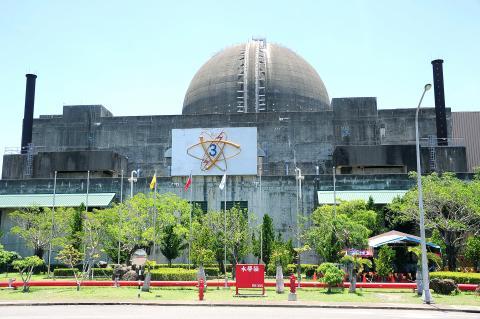The American Institute in Taiwan (AIT) on Tuesday said an emergency message it sent to US citizens in Taiwan on Feb. 10 was a reminder to be prepared for natural disasters, after a magnitude 7.8 earthquake hit southeastern Turkey on Feb. 6.
The AIT represents US interests in Taiwan in the absence of official diplomatic ties.
It explained the purpose of the emergency message after a local TV station reported that the AIT sent an e-mail to US citizens about a possible evacuation in the event of a cross-strait conflict.
Citing an unnamed source, the report claimed the message said that if cross-strait tensions were to escalate, an evacuation plan could be launched under the codeword “earthquake.”
The report did not present a copy of the message or any details to confirm that it even existed.
The only emergency message sent by the AIT so far this year has been the message on Feb. 10, titled “Preparing Now for Disasters.”
An AIT spokesperson said the message was “part of our regular, ongoing outreach conducted to US citizens worldwide,” which is done because “the welfare and safety of US citizens abroad is one of the highest priorities of the Department of State.”
The message, which is also available on the AIT’s Web site, says news of the earthquake “reminds us that a disaster can occur at any time, unexpectedly, and the best time to prepare for one is now.”
“AIT reminds US citizens in Taiwan that Taiwan is in a region prone to disasters. If you find yourself affected by an unexpected disaster, your own preparations will be most important,” it says.
The message also urged Americans to prepare a “go-bag” to ensure documents and necessary supplies are easily accessible in case of emergency.
It also advised US citizens to enroll in the state department’s Smart Traveler-Enrollment Program to receive security messages.

A fugitive in a suspected cosmetic surgery fraud case today returned to Taiwan from Canada, after being wanted for six years. Internet celebrity Su Chen-tuan (蘇陳端), known as Lady Nai Nai (貴婦奈奈), and her former boyfriend, plastic surgeon Paul Huang (黃博健), allegedly defrauded clients and friends of about NT$1 billion (US$30.66 million). Su was put on a wanted list in 2019 when she lived in Toronto, Canada, after failing to respond to subpoenas and arrest warrants from the Taipei District Prosecutors’ Office. Su arrived at Taiwan Taoyuan International Airport at 5am today on an EVA Air flight accompanied by a

An essay competition jointly organized by a local writing society and a publisher affiliated with the Chinese Communist Party (CCP) might have contravened the Act Governing Relations Between the People of the Taiwan Area and the Mainland Area (臺灣地區與大陸地區人民關係條例), the Mainland Affairs Council (MAC) said on Thursday. “In this case, the partner organization is clearly an agency under the CCP’s Fujian Provincial Committee,” MAC Deputy Minister and spokesperson Liang Wen-chieh (梁文傑) said at a news briefing in Taipei. “It also involves bringing Taiwanese students to China with all-expenses-paid arrangements to attend award ceremonies and camps,” Liang said. Those two “characteristics” are typically sufficient

A magnitude 5.9 earthquake that struck about 33km off the coast of Hualien City was the "main shock" in a series of quakes in the area, with aftershocks expected over the next three days, the Central Weather Administration (CWA) said yesterday. Prior to the magnitude 5.9 quake shaking most of Taiwan at 6:53pm yesterday, six other earthquakes stronger than a magnitude of 4, starting with a magnitude 5.5 quake at 6:09pm, occurred in the area. CWA Seismological Center Director Wu Chien-fu (吳健富) confirmed that the quakes were all part of the same series and that the magnitude 5.5 temblor was

Restarting the No. 2 reactor at the Ma-anshan Nuclear Power Plant would take up to 18 months, Minister of Economic Affairs J.W. Kuo (郭智輝) said today. Kuo was answering questions during a meeting of the Legislative Yuan’s Economics Committee, where legislators are considering amendments to the Renewable Energy Development Act (再生能源發展條) amid concerns about the consequences of the Pingtung County reactor’s decommissioning scheduled for May 17. Its decommissioning is to mark the end of Taiwan’s nuclear power production. However, Chinese Nationalist Party (KMT) lawmakers have proposed an amendment to the Nuclear Reactor Facilities Regulation Act (核子反應器設施管制法) that would extend the life of existing